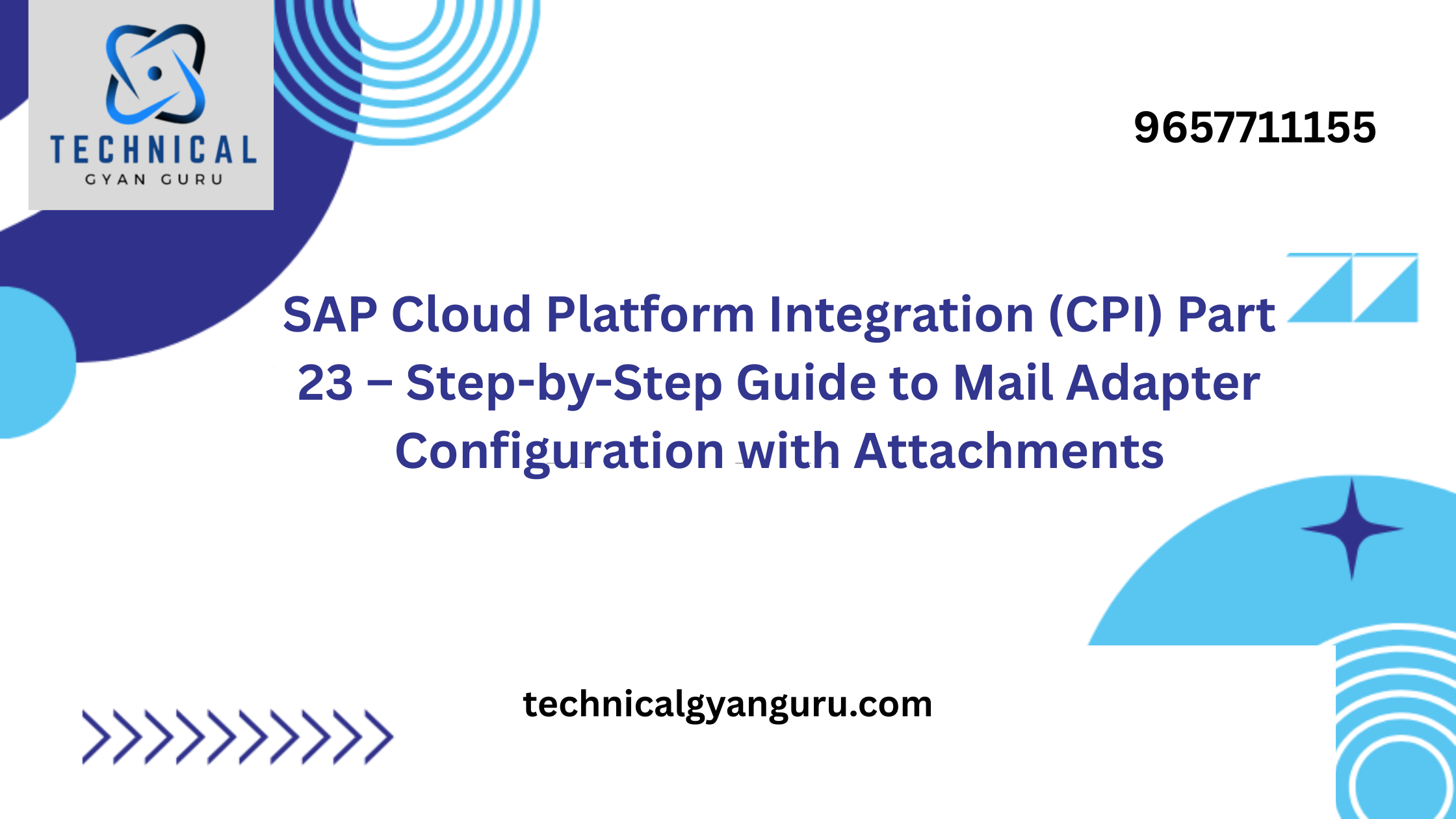Struggling with complex SAP Fiori authorizations? Don’t be frustrated! We unveil the top pain points & provide practical solutions to secure & empower your users…
Is your frustration with SAP Fiori authorizations reaching fever pitch? Do complex roles and user access issues leave you feeling like you’re battling a multi-headed beast? You’re not alone! SAP Fiori’s immense potential can quickly turn into a security and management nightmare if authorizations aren’t tamed effectively. But fear not, weary warrior! This comprehensive guide equips you with the knowledge and tools to conquer the top pain points in SAP Fiori authorizations, bringing peace and control back to your security landscape. Dive deep into practical solutions for managing complex roles, streamlining user provisioning, and ensuring ironclad compliance. No more hacking through tangled access controls or cringing at security audits. Get ready to empower your users with the right access, secure your valuable data, and finally experience the true power of SAP Fiori – all while keeping your sanity intact! So, buckle up, grab your digital shield, and let’s tame the Fiori beast together!
Demystifying the Maze: Unveiling Top Pain Points in SAP Fiori Authorizations
SAP Fiori’s sleek interface and intuitive design unlock a world of user-friendly access to your crucial business data. But beneath the surface, authorizations can quickly become a tangled web of frustration. Let’s delve into the five most common pain points and shed light on practical solutions to navigate this complex landscape:
1. Taming the Role Monster: Complex Structures & Dependencies
Imagine managing access for diverse user groups, each with unique needs and varying levels of granularity. Traditional authorization methods often fall short, leaving you with overly complex role structures and intertwined dependencies that are difficult to maintain and audit. The struggle is real!
The Solution: Embrace the power of business role-based authorization. This approach maps user access to predefined business roles, simplifying management and aligning permissions with real-world job functions. Additionally, consider dynamic provisioning tools that automatically grant or revoke access based on pre-defined criteria, saving you time and ensuring accuracy.
2. User Provisioning & Deprovisioning: From Chaos to Calm
Manually adding and removing user access is a recipe for errors and security risks. Imagine the potential consequences of forgotten accounts or delayed deprovisioning! Streamlining this process is crucial.
The Solution: Implement automated user provisioning tools that integrate with your identity management system. These tools streamline access requests, ensure timely deprovisioning upon employee exits, and minimize the risk of human error. Remember, least privilege access is key, so grant only the permissions necessary for each user’s role.
3. Balancing Security & Compliance: Walking the Tightrope
In today’s data-driven world, adhering to strict regulations like GDPR is paramount. But balancing user access with robust security can feel like walking a tightrope. How do you empower users while safeguarding sensitive information?
The Solution: Prioritize segregation of duties (SoD) to prevent individuals from possessing excessive control. Leverage risk-based access controls to dynamically adjust permissions based on user behavior and context. Remember, regular security audits and user activity monitoring are vital for identifying and addressing potential security breaches.
4. Bridging the Islands: Integrating with Existing Security Systems
SAP Fiori operates within a broader IT ecosystem. Integrating its authorization system with existing security landscapes can be a daunting task, especially with heterogeneous environments. Single sign-on (SSO) implementation adds another layer of complexity.
The Solution: Explore identity federation solutions that enable seamless user authentication across different systems. Consider centralized authorization platforms that consolidate access management for all applications, including Fiori. Remember, clear communication and collaboration with your IT security team are key to successful integration.
5. Seeing the Unseen: Monitoring & Auditing User Activity
Effective access control requires visibility into user actions. Imagine the blind spots if you can’t track who accessed what and when. Identifying suspicious activity becomes an uphill battle.
The Solution: Implement user behavior analytics tools that provide real-time insights into user activity patterns. Leverage SIEM integration to consolidate security logs from various systems, offering a holistic view of security events. Remember, regular reviews of audit logs help identify potential security gaps and inform proactive mitigation strategies.
These are just the initial steps on your journey to taming the Fiori beast. Stay tuned for further insights, practical tips, and valuable tools to conquer your authorization challenges and unleash the full potential of SAP Fiori in a secure and controlled environment!
Additional Tips & Tools for Fiori Authorization Mastery
Now that you’ve grasped the core pain points and solutions, let’s delve deeper with additional tips and tools to solidify your Fiori authorization mastery:
1. Embracing Best Practices:
- Standardization is key: Define and document clear authorization policies and procedures to ensure consistency and reduce errors.
- Least privilege reigns supreme: Grant only the minimum permissions necessary for each user’s role, and regularly review access rights.
- Regular reviews and audits: Schedule periodic assessments of your authorization landscape to identify and address potential vulnerabilities.
- User education is crucial: Train users on security best practices and the importance of responsible access management.
2. Leveraging Powerful Tools:
- SAP Access Control (GRC): This comprehensive suite helps manage user access, roles, and risks across your entire SAP landscape, including Fiori.
- Identity Management solutions: Integrate Fiori with your existing identity management system for centralized user provisioning and authentication.
- Fiori Launchpad Analyzer: This tool analyzes your Fiori launchpad configuration and identifies potential security risks related to authorizations.
- Security Information and Event Management (SIEM): Consolidate security logs from Fiori and other systems for holistic threat detection and incident response.
3. Exploring Emerging Trends:
- Machine learning and AI: These technologies are increasingly used to automate authorization tasks, identify anomalous user behavior, and predict potential security threats.
- Dynamic authorization: This approach adjusts access permissions based on real-time context, user behavior, and risk factors, offering a more granular and adaptable security posture.
- Blockchain-based authorization: This emerging technology promises immutability and distributed ledger security, potentially revolutionizing access management in the future.
1. How can I simplify complex SAP Fiori role structures?
Simplifying complex role structures requires a multi-pronged approach:
- Consolidate roles: Analyze existing roles and merge those with overlapping permissions, reducing overall complexity.
- Leverage business roles: Implement business role-based authorization to map user access to real-world job functions, simplifying management.
- Utilize authorization tools: Tools like SAP GRC help visualize role structures, identify redundancies, and automate role creation and maintenance.
Remember, simplifying roles requires careful analysis and planning to avoid compromising security or user productivity.
2. What are the best practices for user provisioning in Fiori?
Best practices for user provisioning include:
- Automate user provisioning and deprovisioning: Eliminate manual processes and minimize human error through automated tools.
- Enforce least privilege: Grant only the minimum access needed for each user’s role and regularly review access rights.
- Leverage self-service provisioning: Empower users to request and manage their own access within predefined parameters.
- Integrate with your identity management system: Ensure seamless user provisioning and deprovisioning across all your applications.
Following these best practices ensures efficient, secure, and user-friendly access management for your Fiori environment.
3. How can I ensure compliance with data privacy regulations in Fiori?
Compliance with regulations like GDPR requires robust authorization controls:
- Implement fine-grained access control: Granular permissions allow you to restrict access to specific data fields and functionalities based on user roles and needs.
- Enable data logging and auditing: Track user activity and data access to demonstrate compliance and identify potential misuse.
- Conduct regular data privacy assessments: Evaluate your Fiori environment for vulnerabilities and ensure adherence to relevant regulations.
- Educate users on data privacy: Train users on their responsibilities and best practices for handling sensitive data.
Taking these steps demonstrates your commitment to data privacy and helps you avoid costly non-compliance penalties.
4. How can I integrate Fiori authorizations with my existing security systems?
Integration requires careful planning and consideration of your specific environment:
- Utilize identity federation: This allows users to authenticate once and access Fiori and other systems seamlessly.
- Explore centralized authorization platforms: These platforms consolidate access management for all applications, including Fiori.
- Standardize authentication protocols: Ensure consistent authentication across all systems, simplifying integration and management.
- Collaborate with your IT security team: Their expertise is crucial for a smooth and secure integration process.
Conclusion
Taming the Fiori Beast: From Frustration to Empowered Control
Navigating the complexities of SAP Fiori authorizations can feel like battling a multi-headed beast. But fear not, warriors of security and efficiency! This comprehensive guide has equipped you with the knowledge and tools to turn frustration into control and unlock the true potential of your Fiori environment.
We’ve delved into the top pain points – from intricate role structures to user provisioning woes, compliance concerns, and integration challenges. Each section offered practical solutions, like business role-based authorization, automated provisioning tools, segregation of duties, and identity federation. Remember, least privilege is your mantra, and regular monitoring is key to maintaining a secure landscape.
Embrace the power of additional tips and tools like SAP GRC, user behavior analytics, and emerging trends like AI-powered access control. Remember, authorization is an ongoing journey. Stay updated, explore innovative solutions, and don’t hesitate to seek expert guidance.
The benefits are clear: empowered users, protected data, streamlined processes, and a future-proof Fiori implementation. So, take action today! Implement the solutions, leverage the tools, and remember, with continuous effort and a commitment to learning, you can conquer the Fiori beast and unleash its full potential for your organization’s success!
One final piece of advice: The journey to Fiori mastery is a collaborative effort. Engage your stakeholders, communicate effectively, and leverage the expertise of your IT security team. Together, you can build a secure and thriving Fiori environment that empowers your users and fuels your digital transformation. Now go forth and conquer!
you may be interested in this blog
Uncovering the Exciting World of Salesforce Careers: Opportunities for Growth and Success
SAP vs Salesforce: Clash of the Titans? Choosing the Best CRM for Your Business.
6 REASONS WHY INTELLIGENT TECHNOLOGIES FROM SAP IS THE FUTURE OF INTELLIGENT ERP








